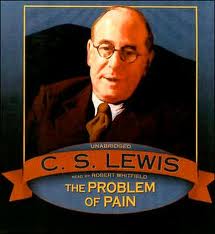In The Problem of Pain, C. S. Lewis brings all of his philosophical and critical skill to bear in responding to this classic contra Deum claim: “If God were good, He would wish to make his creatures perfectly happy, and if God were almighty, he would be able to do what he wished. But the creatures are not happy. Therefore God lacks either goodness, or power, or both.” This assertion, Lewis says, “is the problem of pain in its simplest form.”
His response, while deeply thoughtful and eloquently expressed, is far from simple. In successive short yet profound chapters, Lewis proceeds not so much to answer the question, but to break it down into key elements; clarify the meaning, logical suppositions, and inferences in each; and engage the reader’s mind with the necessary and consequential implications that emerge from the exercise. What does it really mean to speak of Divine Omnipotence? How are we to understand Divine Goodness? How and when do Human Wickedness and the Fall of Man figure into things?
What lies at the center of the question, Lewis points out, is the way we understand the nature of God’s love for His creation. “The problem of reconciling human suffering with the existence of a God who loves is only insoluble so long as we attach a trivial meaning to the word, ‘love,’ and look on things as if man were the centre of them. Man is not the centre. God does not exist for the sake of man. Man does not exist for his own sake.” We approach the problem of pain with a flawed assumption that our personal happiness and satisfaction in life should be the primary concern of our “loving” God. Like spoiled children, we crave indulgence when we need discipline. We expect to receive all we want without considering what we really need. We assert our right to be free from all restrains while forsaking any sense of personal responsibility. “To ask that God’s love should be content with us as we are,” Lewis asserts, “is to ask that God should cease to be God.”
How can “The Good God” not have our ultimate happiness and absolute well-being as the focus of His love for us? Perhaps He does, and it is our own conceptions of what it means to be happy and well and fulfilled and satisfied which are skewed. But if this were true, then we would be required to submit ourselves to a measure outside of ourselves in order to “right” our perspective. Our resistance (or refusal) to do so is rooted in the same disobedience that produced the Fall of Man: we wish to be “our own” and to exist for “ourselves.” “From the moment a creature becomes aware of God as God and of itself as self,” Lewis writes, “the terrible alternative of choosing God or self for the centre is opened to it.” To choose self as the center is the “basic sin behind all particular sins,” and we are “either committing it, or about to commit it, or repenting it” every day of our lives.
But suppose we rightly choose to submit, rightly place ourselves in relation to Him, and rightly align our sense of goodness and love and happiness as He teaches us? And what if, even though we do so, our beloved falls ill and dies? How does one whose mind was able to so insightfully reflect upon (and even make sense of) “the problem of pain” react when the “problem” becomes personal? Lewis shows us with brutal honesty in A Grief Observed. After his wife’s death, Lewis observes,
I can believe He [is a Good God] when I think of my own suffering. It is harder when I think of hers. What is grief compared with physical pain? Whatever fools may say, the body can suffer twenty times more than the mind. The mind has some power of evasion.
In this painfully intimate little book, Lewis offers no answers beyond faithful obedience to what one knows despite what one so viscerally feels. Near the end, he simply states, “We cannot understand.” Is our ability to understand God, in such times, “an act of intelligence or of love? That,” Lewis concludes, “is probably another of the nonsense questions.”

